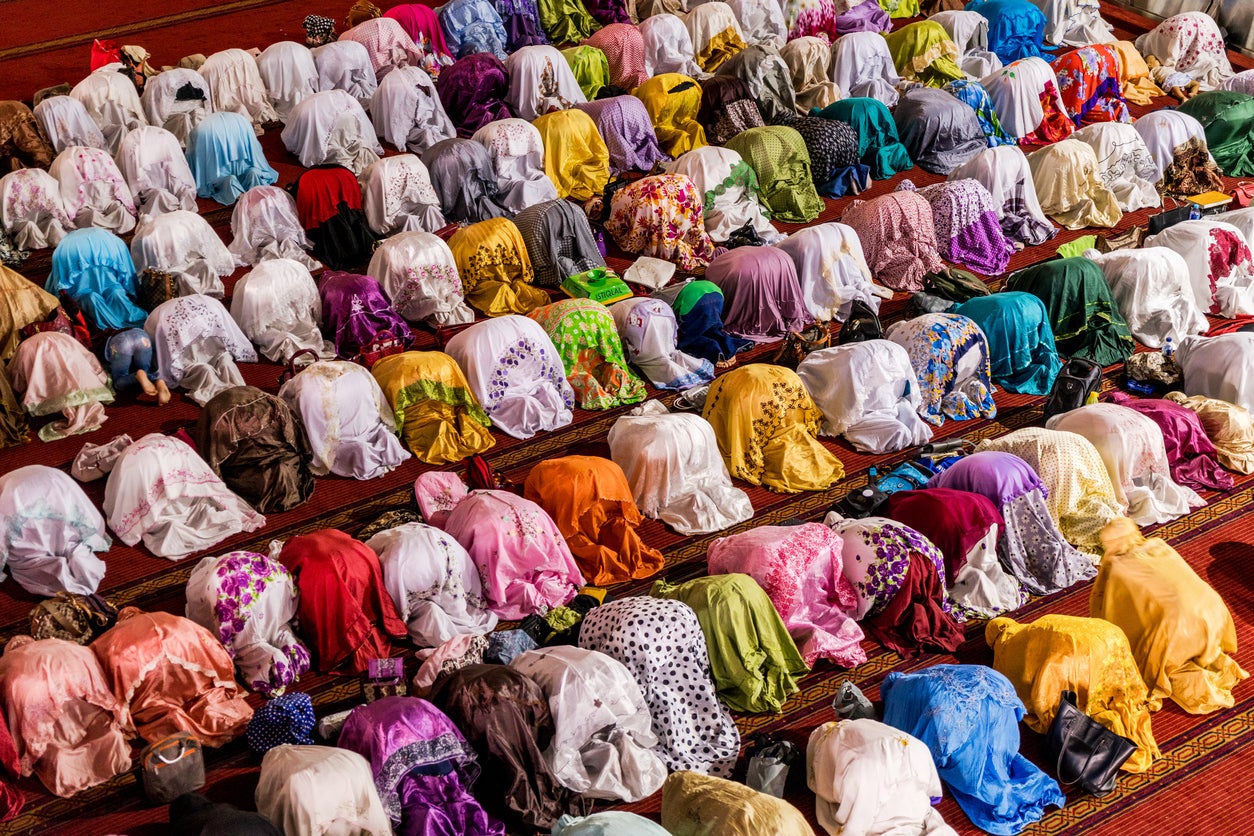The Independent's journalism is supported by our readers. When you purchase through links on our site, we may earn commission.
The five most feared buzzwords associated with Islam in the West, and what they really mean
We need to change the way we talk about extremism to strip the alt-right of its audience, which has been brainwashed into thinking my faith is synonymous with terrorism

The post-9/11 era has been rife with Islamophobia, populism and the growing support for the far-right across Europe and the US – most notably in recent years.
Hostility and discrimination against Muslims in the UK has peaked, resulting in 1,260 hate crimes in the year up to March 2017. A culture of fear, capitalised on by so-called terrorism experts and pundits, has created a vehicle for all types of extremists to target anything associated with Islam. Here are some of the most commonly misused buzzwords.
1. Islam
When most people hear the words “Islam” or “Muslim”, their mind conjures up images of brown bearded men, burqa-clad women, Isis, Al-Qaeda, and all manner of other stereotypes. A Google image search will confirm these preconceptions, but there are 1.3 million Muslims in the world: we don’t all look the same or hold the same views.
The word “Islam” originates from the Arabic root word salaam, which translates as “peace”. For Muslims, Islam is not a political ideology but a way of life which involves adhering to the five tenets of faith: belief in God, fasting during Ramadan, making pilgrimage, giving to charity and praying five times a day.
Muslims are not a homogenous entity; they come in many forms, including different Islamic philosophies and different levels of observance. Many Muslims believe that prophet Muhammed is a direct descendant of Abraham through Ismail, and that Islam has many parallels with the Judeo-Christian tradition. Islam should not be viewed in isolation, it is as much a part of our society as any other faith.

2. Burqa
The Muslim woman’s modest dress has long been under scrutiny. The burqa, a long, loose garment covering the whole body from head to feet, is viewed specifically as a symbol of female oppression. Countries including the UK, France, Germany and Australia have wrestled with the issue of whether or not to ban the burqa, reinforcing the idea that it’s something to be feared.
Critics of the burqa often argue either that it’s a security concern and a hindrance to integration, but there’s barely any data to support such claims. Although there is no ban on Islamic dress in the UK, remarkably, a 2016 YouGov poll found that 59 per cent of Americans opposed a burqa ban compared to 61 per cent of Britons who supported it.
One of the most common misconceptions is the idea that the burqa is enforced upon Muslim women, with Saudi Arabia’s oppressive regime cited as an example of this, despite the fact that it's a political, not a religious, decision to enforce it. But for most Muslim women it is a choice, and wearing a burqa symbolises liberation and freedom to them, as it allows them to be appreciated and judged for their intellect, and not based on physical appearances. Figures show that such a small minority of women in Europe choose to wear a burqa, that banning it would be essentially pointless, and do nothing but take away a woman's choice.
3. Jihad
Last month Linda Sarsour, an American Muslim activist, saw herself in the midst of controversy when she delivered a speech to a predominantly Muslim audience and quoted a line from the prophet Muhammed: “A word of truth in front of a tyrant ruler or leader, that is the best form of jihad.” Sarsour clarified that this meant standing up for those who are oppressed by their leaders locally and globally: that includes the Islamophobes, fascists and white supremacists.
Nowhere in the Quran are the words “holy war” equated to Jihad, which in fact represents one’s internal struggle to lead a virtuous life. Today, most Muslims use it to describe things like waking up for the early dawn prayers or giving up a bad habit. It does not represent extremism or violence to the vast majority of Muslims.
4. Allahu Akbar
These two words have become synonymous with extremism, even though their true meaning are anything but. The phrase literally means “God is greater”, and is used by Muslims whilst praying.
Just last year, Greater Manchester Police apologised for using the phrase in a terror attack simulation as part of a training exercise, as it reinforcing stereotypes, provoking Islamophobia. Speaking to Al Jazeera, Miqdaad Versi, assistant secretary general at the Muslim Council of Britain, said that "by using this word [in the terror training], Muslims around the world are being associated with terrorists". The phrase has been coopted by terrorists and far-right extremists as a war cry and stripped of its real meaning.
5. Terrorism
The term seems to be used exclusively in reference to crimes committed by those who claim to be acting on behalf of the Islamic faith, yet a recent report revealed that “right-wing extremists were behind nearly twice as many incidents” as terror acts associated with those identified as “Islamist domestic terrorism”. Angry white men become radicalised too, but we rarely hear about it referred to as “terrorism”.
It is time to take a stance against these fallacies and reclaim these concepts from a bigoted society which has played right into the hands of extremists who have instilled fear in our hearts for too long.
Join our commenting forum
Join thought-provoking conversations, follow other Independent readers and see their replies
Comments
Bookmark popover
Removed from bookmarks